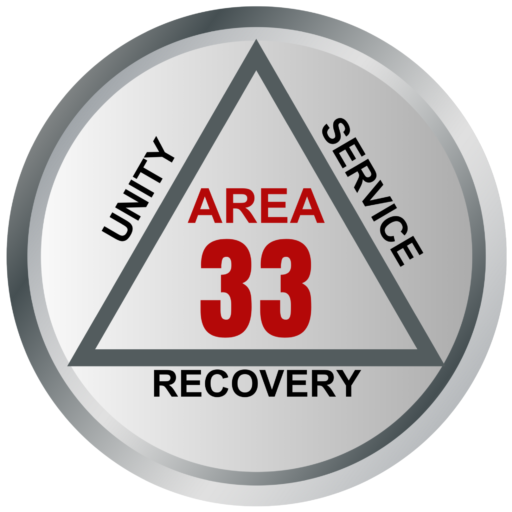There are many myths and urban legends about the first sober member of Alcoholics Anonymous in the metro-Detroit area. We hope this clears up many views.
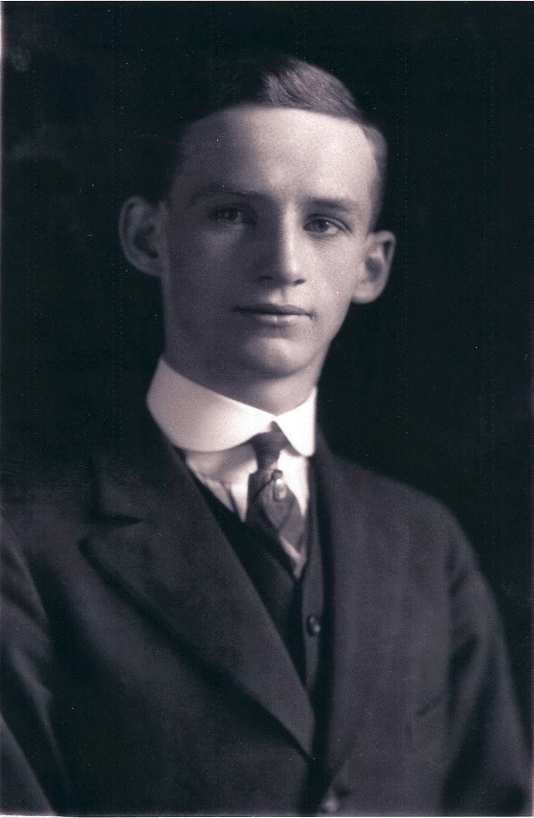
In the late-1930s there was a man living in the skid row of Detroit in need of a “cure” for the disease of alcoholism that he had acquired earlier in life. He was a handsome man, with a promising career. He said he was from a good “upper middle class” family from the Grosse Pointe area. This is a fallacy, as he lived in Detroit and did not live in Grosse Pointe until later in sobriety. This man was Archie Trowbridge.
Archie Trowbridge’s grandfather, Edward Trowbridge Sr., was born and raised in Troy Corners, which was near Square Lake and Livernois Road, now known as Troy, Michigan. As an adult, Edward Sr., and his family moved to Marash, Turkey where Archie’s father, Edward Jr., was born. The family returned to the United States settling in the Detroit area when Edward was twelve years old.
Edward Jr. began working as a reporter for the Detroit Free Press. A noted engineer he got a job with the responsibility for overseeing the stringing of AT&T’s long distant lines in Michigan. He then became the general manager of the Michigan Bell Telephone Co. Doing an exceptional job, the international utility empire, transferred him to Spain, Brazil and Mexico City. Returning to Detroit area’ working in the insurance field, he lived on Parker Ave between Jefferson Ave and the Detroit River.
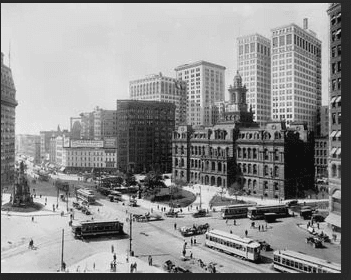
Archie enlisted in the Army in September 1918, at the age of 19, however with WWI ending two months later, he did not serve very long. At the age of twenty-one he had begun his drinking career in the “gin-and-jazz era” of the early twenties. He had to drop out of college after a year due to family financial difficulties. It necessitated his going back to work. In the 1920 city directory indicates that Archie, working as a stockbroker, lived on Parker Ave with Edward Sr. and Edward Jr., who would go on to be a successful executive at Stroh’s Brewery Co. (apparently Archie’s mother had passed by this time). He entered the business world with every confidence that success lay ahead. He had endless dates and went to countless dances, balls and dinner parties.
This went on for many years. Archie always planned ways to sidestep the things he feared, carefully concealing them from everyone. During this time, he had to give up the presidency of a small real-estate firm even though it had gained success. Shortly thereafter, Archie’s life was suddenly shattered when he had a devastating nervous breakdown. Doctors could find nothing wrong with him. Psychiatry might have helped, but little was known about this field of medicine in Detroit at that time. Recovery from the nervous breakdown came very slowly; he spent three months in bed. He ventured out of the house for a walk, but became frightened by the time he reached the corner. He later learned to take short street-car rides, then longer ones and so forth, until he appeared to be doing most of the things other people do daily.
Gradually he was able to do more and even to work at various jobs. He got a part-time job selling printing for a small neighborhood printer. After a short time, he was able to get a job at a downtown printer, He couldn’t physically handle the stress of the hard work, so jobs came and went. That’s when his drinking started in the early evenings and afternoons. He found alcohol helped him relieve his many fears.
By the age of thirty, both his parents had died, leaving him a sheltered and somewhat an immature man, on his own. He moved into the Crestwood Arms Apartments a “bachelor hall,” where the men all drank on Saturday nights and enjoyed themselves. Archie drank with them, but also drank himself to sleep every night. Being a real estate agent, he struggled with the real estate business.
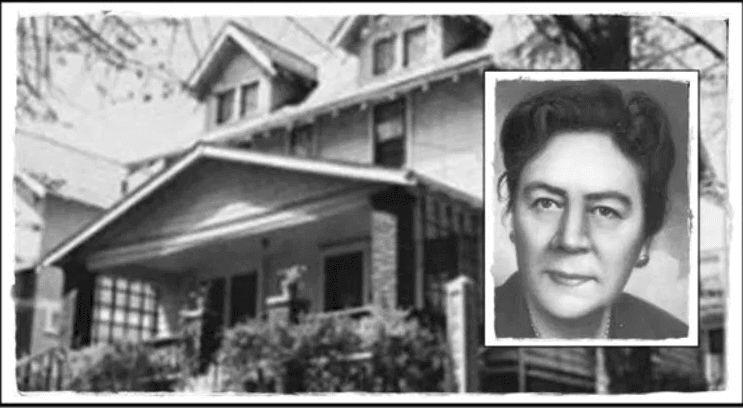
During this depressive time, in the mid-1932 he met “a lovely girl,” by the name of Margaret O’Meara, who he married a short time later. They had a son together named, Sean, born on August 9, 1935. The marriage lasted until January, 1937, when they finally divorced. Archie came home drunk one night from a party. His wife’s illness had kept her from going. By that time Archie had become the kind of drunk who would never dream of missing a party just to keep his sick wife company.
Archie came home letting himself in and struggled upstairs to his wife’s bedroom. She sat up in bed, took one look at him and screamed. Archie was standing in the open doorway in his torn evening clothes, his shirt spattered with blood, a red trickle oozing from his mouth, grinning foolishly at her. He had driven into a parked car on the way home. Margaret took their four-year old son and left the next morning, divorce was inevitable.
By this time, Archie compared his life from that point, like a toboggan ride that was starting to accelerate. He was homeless, jobless, penniless, and totally unable to quit drinking for more than a few hours, usually long enough to borrow or beg for more whiskey money from a few friends he had left. He would sit around Michigan Ave. bars waiting for something to happen to him, thinking more and more of suicide.
Archie was staying with whoever would put him up for a few nights. He eventually was staying with a friend he called “Ralph”, (we are still researching to find out who Ralph was), in the Grosse Pointe area whose family was on vacation in Europe.
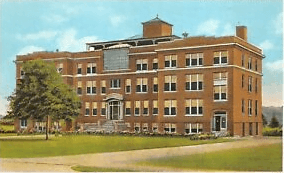
Nearing Labor Day weekend in 1938, “Ralph” knew his friend needed a new lease on life, new interests. He told Archie, he couldn’t help him with this. He inquired that if Archie was interested, he knew of a woman by the name of Beth Benson. She was (see section on the Bensons), a member of the Oxford Group and maybe able to give him these things. Archie was ready, as ready as a drunk could be.
The meeting was to be at 4:00 pm the next day. “I wondered how I was going to keep an appointment at four o’clock in the afternoon. And be reasonably sober! And I finally hit on a marvelous solution. I would get up a little earlier than usual and make an effort to get drunk faster. So that I would come home knowing my own habits and sleep off the first of the day’s drinks and then go straight over and see her to keep this appointment. I did these things and they worked out that way.” Archie began to wonder how he was to keep his appointment and arrive reasonably “sober!” He hit upon a marvelous solution. He would get up earlier than usual and make an effort to get drunker faster. He did these things and it worked.
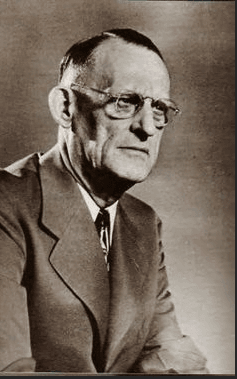
Arch’s friend “Ralph” introduced him to Beth Benson, a non-alcoholic. The woman offered Archie a chance to go down to Akron, Ohio and to meet some men who had found a solution to their problem, which was his problem. Beth and her husband, Ben, offered to take Archie to Akron, and do it the next day if he were willing. The woman, however, insisted that Archie make up his own mind about it; perfectly, freely and without pressure from her. This took Archie quite a while. He spent a long time in her house thinking about it.
In an open talk years later, Archie described this, “I finally made the decision. I left her house with the full intention of hurrying as fast as my car would take me to the nearest saloon in getting a drink. Half way to the saloon something stopped me. I can’t tell you what it was. I know what I think it was. Today I’m sure of what it was. I’m sure that her prayers, which were all that were left to her to do after she let go of me, that her prayers did that. However, I went home and went to bed after 18 days of continuous drinking and sweated it out all night. I don’t need to describe that part of it to you. It makes me shudder to think of it and it would make all you to shudder, but I was on deck the next day, pretty much of a wreck, but I was there to start to Akron.”
Dorothy Snyder, wife of Clarence Snyder (founder of A.A. in Cleveland), tells how while she was spending some time with Anne Smith, wife of Dr. Bob Smith (co-founder of Alcoholics Anonymous), Anne announced that she would not go the picnic planned the next day because she had a sense that she would be needed at home. Early Sunday morning there was a call from Detroit about a man the Benson’s wanted to bring to Akron. The man was Archie Trowbridge

After what seemed like an endless trip to Archie, he, Beth and Ben arrived in Akron. At Akron, Archie was turned over to Dr. Bob Smith and his wife Anne. The first order of business was to admit Archie into Akron City Hospital. This was the hospital where Dr. Bob was a surgeon and he convinced the staff to let him use a bed or two for his alcoholic friends.
Archie spent Labor Day in Akron City Hospital reading the book Sermon on the Mount. It changed the entire outlook on his life. It changed his direction. He was visited both in the hospital and at the home of Dr. Bob by fifteen to twenty men who came to him with their stories, each one different as could be from the next. Every one of those men came cleared eyed, neat and purposeful looking, full of confidence, not cockiness. They impressed him because they had all the things he lacked.
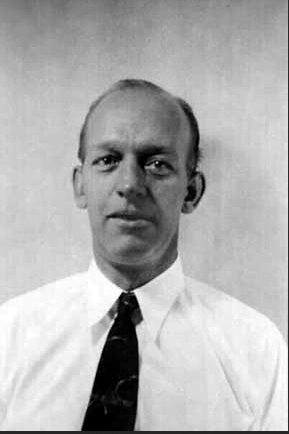
Dr. Bob had said ‘He was so run-down, there wasn’t much left. We thought he was kind of simple.’ At any rate it would be ten and half months before he would be able to return to work in Detroit. Archie stayed with Dr. Bob and his wife during much of that time. During that time Archie felt that it was wrong to impose on them. All members of A.A. in those days were poor. In the 1930’s you didn’t get a job just because you were willing to and you were going to reform. But Arch had to learn (like most alcoholics) to accept their goodness in the spirit in which it was given! But Arch would often rebel in his own mind against having to impose on them.
During the stay at the doctor’s house Archie became like a second son to Anne. In later years, Archie said, “I had been taken off the streets and nursed back to life by Anne Smith I was not only penniless and jobless, but too ill to get out of the house during the day and hunt for work. So great was Anne’s love and so endless her patience with me, so understanding her handling of me, ten months later, I left a new man, perhaps imbued with just a few grains of that love.”
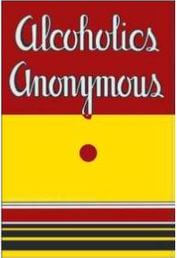
Dr. Bob and fellow members of the yet unnamed society took Archie through the procedures they had developed to get sober. During this time, he met Clarence Snyder, from Cleveland. With just four months sober, in late December, 1938 Archie was asked, by Bill and Dr. Bob to pen his story of recovery for the society’s pet project, a book that was yet unnamed. This story was called, “The Fearful One.”
The society’s book project, eventually to be called Alcoholics Anonymous, was published in April, 1939. Archie’s story, “The Fearful One,” states he had six months sobriety. In notes contained in Archie’s “Big Book,” he states, “I write my story in the small hours of the morning, sometime in late December, 1938 or early January, 1939, just ahead of the printer’s deadline. I had been sober four months. The story said six months as due time was allowed for publication. My perspective was very limited and the story was unduly brief. Sixteen years later I was asked to rewrite it for the first (sic. 2nd Edition, First Print, 1955) new edition.”
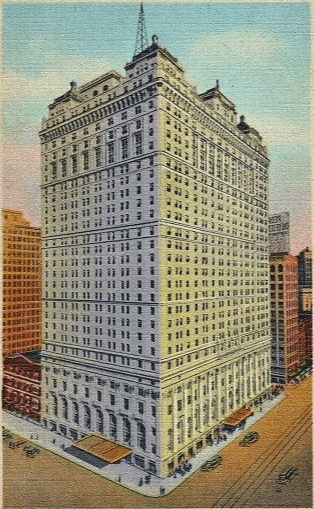
In March, 1939 Bill Wilson, Co-Founder of Alcoholics Anonymous, was in Akron—he frequently stopped there whenever he could get some business excuse to come. While sitting on the doctor’s front porch with Archie, he mentioned that he was on his way to Detroit to take care of some business. Archie replied, “I certainly would like to go up there (to Detroit) and see what the lay of the land is and look around and see whether I could take hold yet or not. And Bill says, ‘Why don’t you?’…I said, ‘Why don’t I?’…Bill said, ‘let’s go now.”
This was Sunday morning. They were going to start right away, then, they decided to wait until Monday morning. Archie and Bill Wilson went to Cleveland, to visit Clarence, and then come up to Detroit by the way of the Mercury Railway.
Bill and Archie stayed Monday and Tuesday at the Book-Cadillac. Archie still felt sick, frail, and frightened. His personal reputation and financial credit still zero, he visited some of his old friends and told them his story. He began to make amends everywhere he could. Bill attended to business, in the meantime. Friends of Archie asked Bill to stay on awhile, but he had to get back to New York. Archie stayed in Detroit and worked entirely on trying to make A.A. contacts that would later on produce prospects.
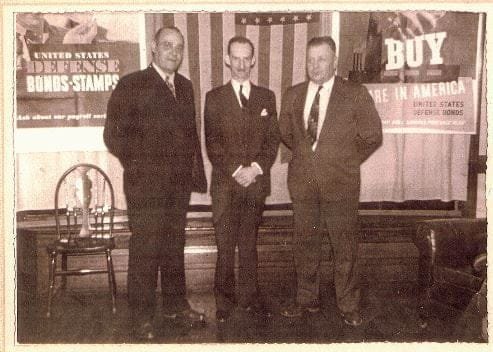
In order to get this picture, you have got to realize, that at that time alcoholism was, with the exception of a few advanced men who had spent time to study it, such as Dr. Silkworth in New York City, an unknown disease. The alcoholic in the public mind was an “ornery cuss,” who didn’t want to stop drinking and had no will-power. However, to plant the seed of recovery Archie talked to personnel men in factories, ministers, doctors, people on street corners, anybody and everybody who would listen. He planted the seed amongst a number of people, not themselves alcoholic prospects, but people who were likely to come in contact with the problem of alcoholism. Archie explained that his disposition was such that he couldn’t and wouldn’t be any good at running in and out of bars and trying to sell this solution cold turkey to some drunk. He had to go about it in a roundabout way of getting prospects where they were most likely to crop up.
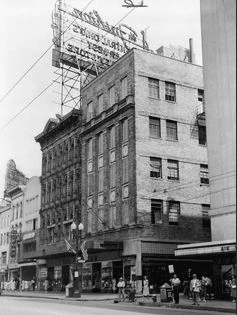
During that March of 1939, Archie got his first prospect and he was a lulu. This prospect was Roy M. (Big Mike), an executive at Hudson Motor Car Co. “Big Mike” was staying with a doctor friend who was also a friend of Archie Trowbridge The doctor came over for dinner one night and said, “I’ve got a man for you. He’s down on Park Ave at a dollar a day hotel (Converse Hotel) and he tried to commit suicide twice that week.” Archie decided after some mental debating, that it was his responsibility to see the fellow.
Archie took a bus from the eastside of downtown Detroit. He went through a lot of mental torture for a half-hour on the bus ride. What was he going to say to the fellow? Every time he got wrought up over it, he finally said to himself, “Wait a minute, your job is get in the room with that man and see what happens next. This wasn’t a twenty-four hour program, this was down to be a five or ten minute program.” Archie got to Roy’s room and he wasn’t very receptive. Later Archie discovered that the man thought he was a private detective.
As every recovering alcoholic knows, there something about being an alcoholic that will win over another alcoholic if you have ten minutes with him. Within those ten minutes Archie had the fellow asking him if it was alright for him to go to work on his bottle. Archie said it would be fine and the man was suddenly at ease.
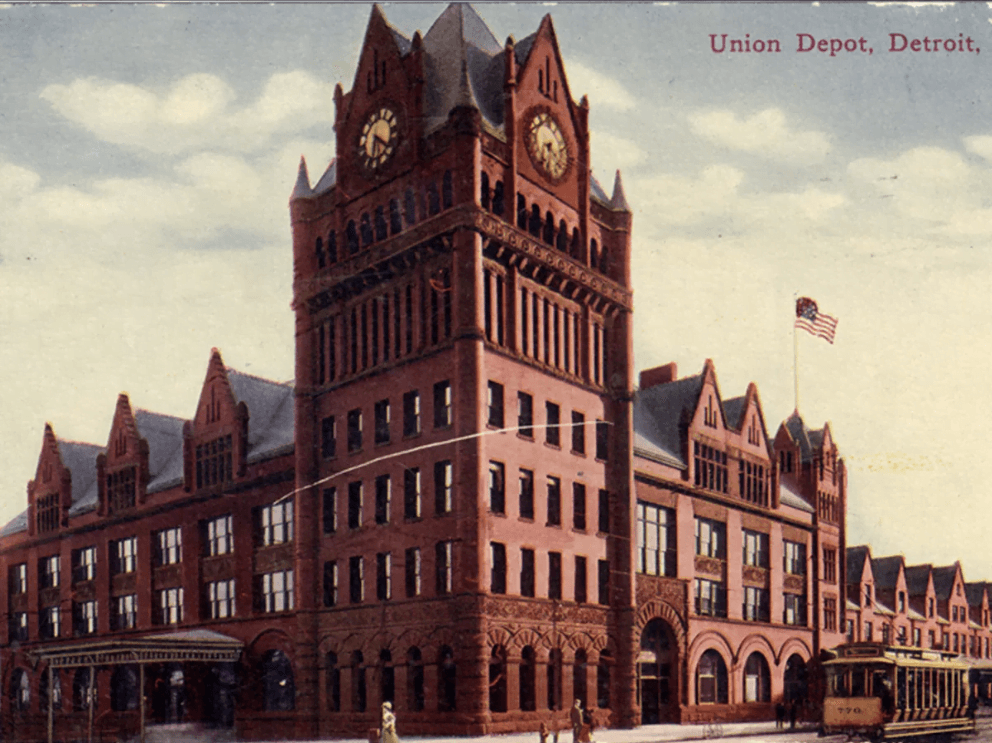
Over the next twenty-four hours Archie was able to raise money amongst his pigeon’s former friends to send him to Akron. Most of the donors thought they were getting a bad drunk out of town permanently. At the time people had no idea what recovery was all about.
Archie shipped the man out of the Union Depot the next afternoon at 5:30 p.m. on the Red Arrow Express. The prospect was all cleaned up with a pint of whiskey in his hip pocket. This was done to help him survive the trip.

Dr. Bob was waiting at the other end, just as he was for Archie. This part of the story was told to tell how Archie’s feet weren’t touching the train platform when he left the depot. As this was his first Twelfth Step attempt and he was in the clouds. Roy was to return to alcohol and eventually died in the late-1940s from this disease.
After three weeks in Detroit, Archie found that it was impossible for him to stay here and find a job. His health was yet not good enough; he returned to Akron exhausted. Upon arriving, waiting in the Smith’s living room was Ann Smith and two people from Cleveland. They had talked among themselves and decided that all Archie was doing was isolating himself in Akron. So, it was decided that Archie would go to Cleveland to help Clarence get AA established there. This is when Archie had acquired a get-tough attitude about recovery. He stayed there until July 10, 1939 when he returned to Detroit to start all over again.
Coming back, Archie had no place to live, no job and his health still very bad. He did come back full of a new attitude towards life and a desire to live differently than he had ever lived before. He made his living the first six months delivering dry cleaning out of a broken-down jalopy to the back doors of his one-time fashionable friends in Grosse Pointe. He eventually began selling hosiery and men’s made-to-order shirts. He did this partly because it was difficult getting a job, but it also left him freedom to do the A.A. he wanted to do.
Looking back in later years, Archie recognized time and time again, many examples of how our Higher Power has much better plans for us, than we make for ourselves! Because what Archie thought was wrong, that is to say his being delayed in Akron and left on Dr. Bob and Anne’s hands. This was part of a plan under which he absorbed A.A. from one of its oldest members, He learned to stand on his own two feet and he gained the strength and spiritual courage to go out alone. Archie didn’t think he could have done these things without those ten and half months.
Many times during his sobriety, Archie was introduced as, ‘The Instrument of God,” for his part played in the development of A.A. locally; he wished everyone would remember that he was blessed to play a small role in carrying the message of recovery.
